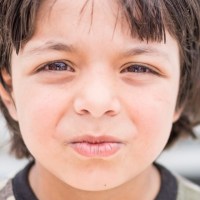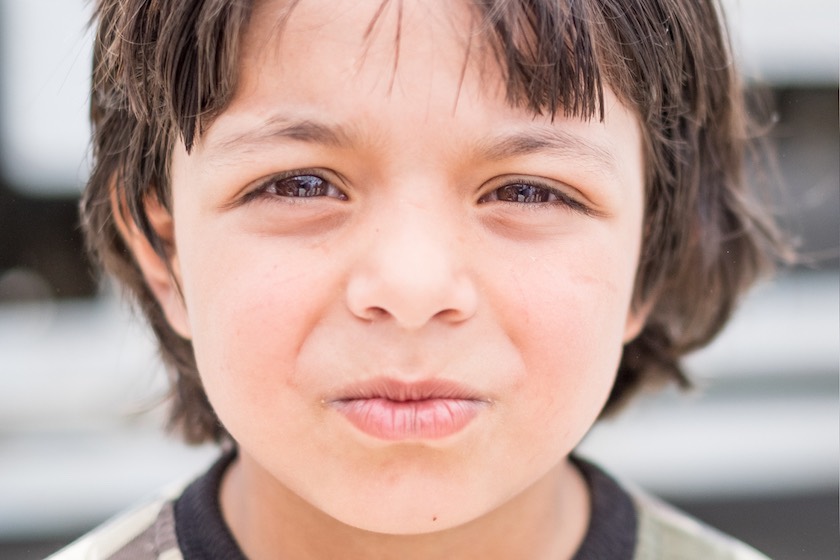Across Iraq, families find themselves in a variety of difficult situations.
Some are desperate to survive as Iraqi forces battle ISIS in the Old City of western Mosul. Others in Mosul are walking out of their homes freely for the first time in over two years, as their neighborhoods experience the first days of liberation.
Just across the river in east Mosul, families no longer have to contend with active fighting. They’re beginning to clean up, repair their neighborhoods, and look for work.
And in many parts of Iraq, other families have been living in tents or makeshift shelters for close to three years and continue to survive in this new “normal.”
As you can imagine, the needs vary from place to place. As we listen to our local partners and serve families across Iraq, we’re reminded that you make it possible to support and strengthen all these lives in all these places.
Here are some of the highlights from Iraq the last month…

1. Meeting Urgent Needs in Mosul
No steady food supply has been able to reach west Mosul since November, and families there face huge risks, whether they stay or flee.
We’ve been persistent in searching for opportunities to deliver month-long food packs in the areas of greatest need. These packs contain items like rice, oil, and canned meat so a family of 5-8 people can eat for four weeks. The logistics of these deliveries have been refined through the months and include purchasing, packaging, and labeling bags of food, as well as planning security, preparing distribution lists, and documenting each family’s receipt of food.
Delivery trips take multiple days of work and dozens of staff and volunteers. Usually the work runs smoothly, but occasionally plans have to change because of nearby fighting. Our staff works with the Iraqi military to determine the areas of greatest potential impact.
Over eight days last month, you provided life-saving food to 5,000 families in Mosul, approximately 25,000 people. Many of these people had been liberated from ISIS just days before. In addition, you provided extra flour to bakeries and gave bread to families on the move.

You’ve also met people’s need for water—sometimes their first clean water in years. Last month you delivered 582,462 gallons of water to our Mosul health clinics and over 70,000 individuals. Trucks go from house to house filling water tanks and buckets with 2.6 gallons per person. In one impoverished area of Mosul, people even brought out tea kettles to be filled—desperate to use any container for the life-saving liquid.

We also sought out neighborhoods that haven’t been reached yet and rushed to serve newly-liberated areas, adding more trucks to the fleet to meet the need.
Because the water trucking business is highly competitive, we have careful reporting procedures and multiple checks in place to protect against corruption, and to ensure that the proper amount of water is reaching families.
These food and water deliveries matter, because you’re meeting needs that help people stay home and help displaced families return. The UNHCR is reporting that families in Mosul are sending word to their displaced relatives that they can return home because food and water is arriving in the city.
Your generosity is directly impacting their ability to return home. Thank you!

2. Medical Clinics and Hygiene Training
For families already back home—and those who never left—the need for medical care and hygiene supplies to prevent the spread of disease is great.
You have been repairing medical clinics and funding staff and medicines for months now. Last month, you provided salaries for more than 55 doctors, nurses, and administrators in eight clinics across Mosul.
You provided emergency supplies and routine medicines for clinics seeing 52,824 cases in and around Mosul. UNICEF reports that we are the largest supplier of primary health care in the area through these clinics.
You also provided water hygiene training for health clinic staff, community leaders, and people working on our water trucks. This important education helps reduce cases of pneumonia, trachoma, scabies, skin and eye infections, and diarrhoea-related diseases like cholera and dysentery.

3. First Vaccinations for Children
In Iraq, measles is one of the leading causes of childhood deaths. Due to years of war and upheaval, large numbers of children have never been vaccinated, leaving them vulnerable to life-threatening illnesses like polio and measles.
Doctors in a region outside Mosul have asked for help providing vaccinations, and you have responded by providing trained medical staff, transportation, and cold storage so that our teams could vaccinate 6,000 children in clinics and schools.
Three of these doctors have chosen to live in a mobile medical clinic for up to six weeks at a time, traveling where no one else is willing to go, amid suicide attacks and harsh weather—all in order to reach these vulnerable children.
Twelve of the health workers running the vaccination program are themselves displaced—which means you are providing jobs for them as you protect Iraqi children from disease.

4. Health Clinic in Tikrit
Some displaced families in central Iraq are out of harm’s way but still living in temporary housing. Our Peace Zone Clinic was established to support them, and you have been helping here since last November. As the weather gets hot, conditions inside the large tent are getting steamy, but that doesn’t stop the staff from creating a caring environment.
The two doctors, two nurses, and three facilitators tend wounds, administer injections, treat chronic and communicable diseases, and provide wheelchairs and crutches for disabled patients. As many as 70 cases are seen each day—with patient ages ranging from newborn to 109!
But their attention goes beyond basic medicine to include education for nursing mothers, home visits to the elderly, opportunities to enroll in empowerment programs, and emotional support for children impacted by war.
Dr. Qudama and his colleagues don’t just fill out official reports on their work; they write lovingly about their patients and keep up with them after they are well. They have created of an incredible atmosphere of encouragement and friendship—in very difficult conditions. That is an inspiration to us.
Thank you for showing up to listen and respond to this wide variety of needs across Iraq last month. You are making a difference here in Iraq!


